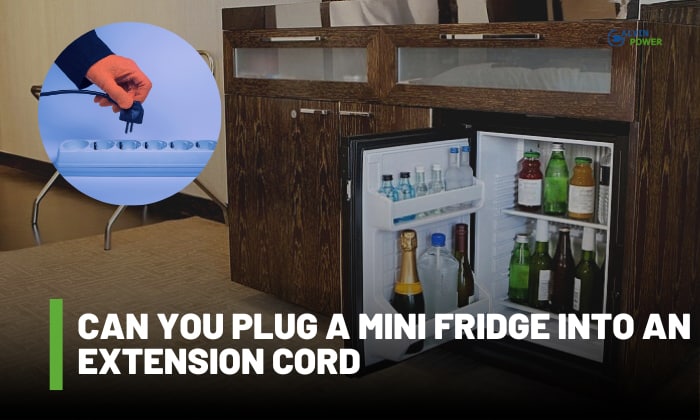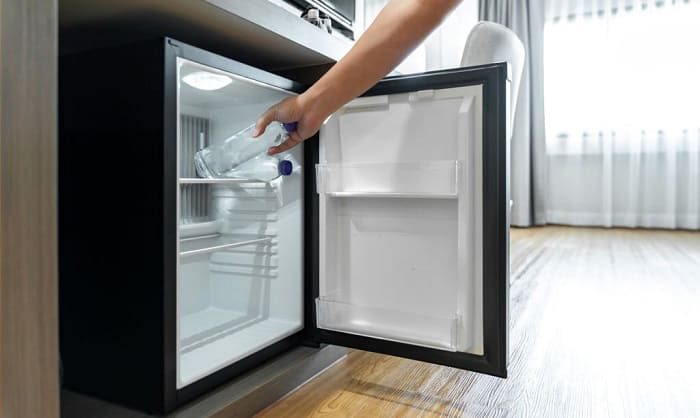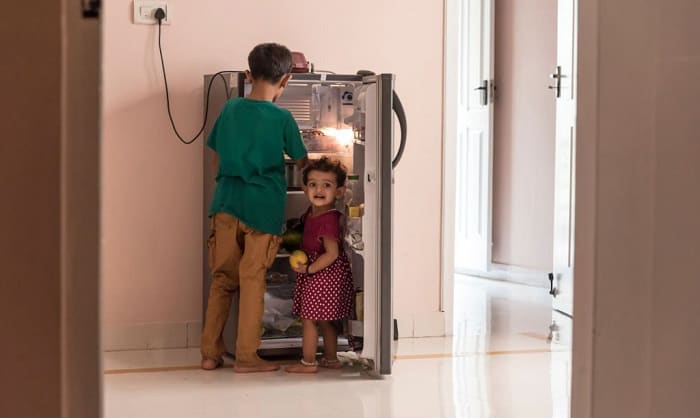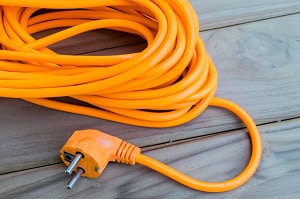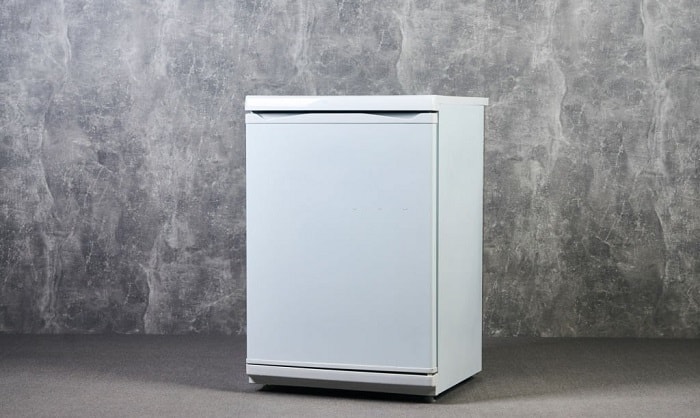A mini fridge is a convenient way to access drinks and snacks in your own room. Since mini fridges are more of an afterthought when designing the electrical connections in rooms at home, most of us resort to using extension cords to power these handy devices.
But can you plug a mini fridge into an extension cord? You can plug it on at least a 14-gauge extension cord or thicker to plug it temporarily until you can install an outlet.
Table of Contents
Can a Mini Fridge Be Plugged Into an Extension Cord?
As stated above, extension cords should only be used temporarily while you install a permanent outlet for your mini fridge.
Why temporary?
- These portable cords are more exposed to elements and rodents than fixed wiring; their sheathing may soon wear out enough to cause a fire. They are not a substitute for fixed wiring in a structure.
- These portable cords also tripping hazards. The US Consumer Product Safety Commission (CSPC) accounts for around 2000 injuries linked to tripping over these portable cords, including fractures or sprains treated in emergency rooms. Extension cords should only be used when necessary.
- What’s worse is that many people have the wrong extension cord in their homes. If the extension cord is too thin or a lower gauge one, it is easier to overheat. Also, an extension cord that’s too long will add more resistance to the mini fridge’s electric force to draw more current.
The US Occupational Health and Safety Administration, or OSHA, only recommends that extension cords be plugged for up to 90 days in workplaces.
Also, the US National Electric Code or NEC version 2023 does not even consider extension cords as a wiring method. Extension or portable cords may only be used to connect portable equipment temporarily.
Tips on Choosing an Extension Cord for Your Mini Fridge
1. Gauge
A mini fridge drawing 2 amps from the outlet won’t be enough to trip the breaker and can be safely handled by a 14-gauge extension cord. Standard 15-amp circuits are usually fitted with 14-gauge wire at home. But remember, it’s only temporary until you have installed an outlet.
2. Length
Do not let a mini fridge be plugged into an extension cord that’s longer than what is needed. Extension cords increase resistance as the length increases, so a mini fridge’s motor might work harder and draw more current to get it starting.
Also, do not plug a refrigerator into an extension cord that is connected across another room (just to get your mini fridge up and running). NEC Section 400.12 prohibits the use of flexible cords under doorways, windows and other similar openings. Keep the extension cord plugged to an outlet within the room.
3. Grounding
Choose the extension cord for mini fridge that is right for the mini fridge power cord. Usually, it has a ground prong to safely remove charge buildup in its metal case, so choose an extension cord with ground. Do not remove the ground prong just to fit it to the standard 2-prong outlet.
Notes on Using Extension Cords
1. Do not think of plugging a refrigerator into an extension cord.
Take note that we are only talking about a mini fridge. We strongly discourage to run a fridge on an extension cord since it draws way more current than a mini fridge. Should you need to plug a regular refrigerator, use a heavy duty extension cord with 10-gauge or 12-gauge wire.
2. Do not plug a freezer into an extension cord.
We also strongly discourage plugging in a freezer to an extension cord. It also needs more current than a mini fridge. Again, we suggest you use a heavy duty extension cord for a freezer.
3. Do not run the extension cord through walls or false ceilings.
NEC Section 400.12 prohibits running power cords through holes in the walls, ceilings or floors, especially that these power cords are not designed to be used as fixed wiring. Only use them as intended.
4. Do not run extension cords under carpets.
OSHA prohibits extension cords under carpets as they can present a fire hazard when extension cords are overheating. Also, the damaged parts of the cord might be concealed behind the carpet.
Frequently Asked Questions
Can you plug a mini fridge into a power strip?
You can temporarily until you have installed a fixed outlet for the mini fridge. Just make sure it’s at least 14-gauge rating that’s short enough for the job needed. Also, if the mini fridge has a grounding prong, make sure to also use a power strip with a ground prong.
Does a mini fridge need a dedicated outlet? Is it safe to plug other appliances with it?
It’s not necessary to plug a mini fridge in its own dedicated circuit. Just make sure the appliances connected to the circuit do not exceed the breaker’s limit. If it’s plugged in a 15-amp circuit, then the total load including the mini fridge should not exceed 12 amps.
Conclusion
If you asked yourself, “Can you plug a mini fridge into an extension cord,” do not forget that you can. Use a 14-gauge extension cord with the right grounding and long enough only for the run from the outlet to the appliance. Using an extension cord is a temporary solution and plans for installing a permanent outlet should be on the works.
Remember that it’s always safer to use a permanent outlet for a mini fridge since an extension cord can wear out and be a fire hazard. It’s best to protect your appliances and your home from any electrical hazard.

I am Edwin Jones, in charge of designing content for Galvinpower. I aspire to use my experiences in marketing to create reliable and necessary information to help our readers. It has been fun to work with Andrew and apply his incredible knowledge to our content.

